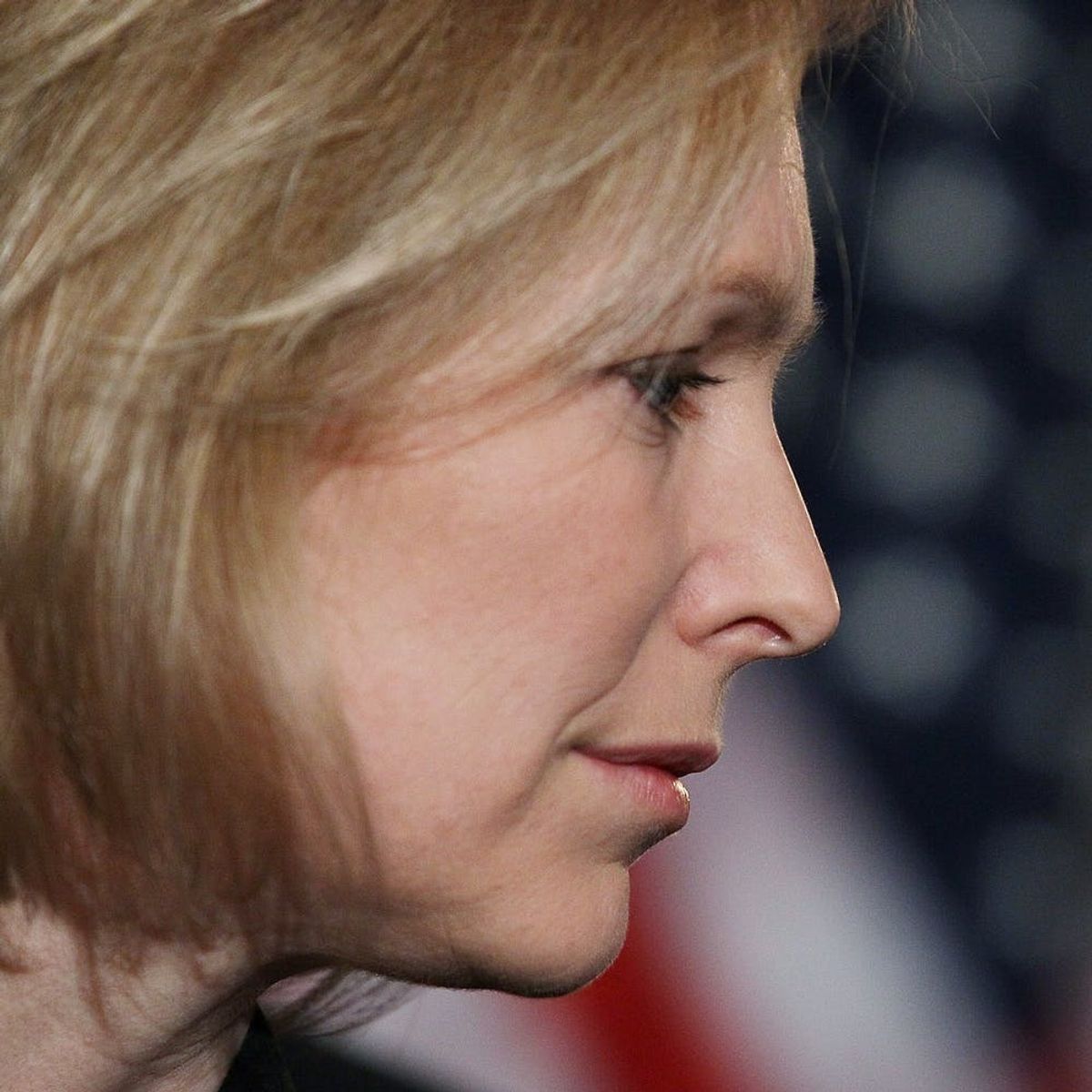A group of Democrat senators wants the Department of Labor to keep tabs on how much money women — and businesses — are losing.
Senators and Experts Say Government Should Track the Cost of Sexual Harassment

UPDATE (March 29, 2018): Yesterday, all 22 female senators signed a letter to sent to Senate Majority Leader Mitch McConnell and Senate Minority Leader Chuck Schumer leadership “to express our deep disappointment” over Senate failure to bring sexual harassment protections up to date.
As reported by CNN, the letter reads: “We write to express our deep disappointment that the Senate has failed to enact meaningful reforms to the Congressional Accountability Act of 1995. We urge you to bring before the full Senate legislation that would update and strengthen the procedures available to survivors of sexual harassment and discrimination in congressional workplaces.”
The women senators from both parties want a vote on legislation that would advance the way workplace sexual harassment claims are dealt with within Congress.
***
As much of the country continues a conversation about the epidemic of sexual harassment and abuse in the workplace, which primarily affects women, a group of Democratic senators wants the government to start taking closer note. Led by New York Senator Kirsten Gillibrand, 22 senators are asking the Department of Labor to begin tracking how much sexual harassment costs women.

The senators made their request in a letter on Monday, directed to Secretary of Labor R. Alexander Acosta and William Wiatrowski, who is acting commissioner of the Bureau of Labor Statistics. Among the 22 senators who have co-signed are Kamala Harris, Elizabeth Warren, and Bernie Sanders. Referencing the recent resurgence of the #MeToo following a slew of allegations against Harvey Weinstein, the letter states that while workplace sexual harassment is a major problem, “there has not been an exact accounting of the extent of this discrimination and the magnitude of its economic costs on the labor force.” But would putting a dollar amount on harassment in the workforce be the best step forward for women?
Noreen Farrell, Executive Director at Equal Rights Advocates, a national civil rights organization fighting gender discrimination at work and in education, says that government intervention is absolutely necessary to better protect women at work.
“When it comes to sexual harassment, we cannot fix what we do not measure,” Farrell tells Brit + Co. “Identifying how workplace trends intersect with sexual harassment complaints will be key. If we are serious about getting a full and accurate picture about the economic cost of sexual harassment, the Department of Labor and the Equal Employment Opportunity Commission (which tracks discrimination complaints) will have to coordinate.”
The senators’ letter notes that between 25 and 85 percent of women have been sexually harassed at work, which can lead to women needing to leave their jobs, and both physical and mental illness. Further, as the letter notes, when women leave a job or even change industries to escape workplace harassment, they lose out on opportunities for raises and promotions. Yet, there are not currently any statistics on exactly how much money women are losing and/or spending as a result of being harassed at work.
Andrea Johnson, the senior counsel for state policy with the National Women’s Law Center, a non-profit organization that pushes for policies and laws that promote women’s rights, says that the letter is “incredibly important.”
“We spend a lot of time talking about how sexual harassment is not about sex but about power, and it’s very much an economic issue,” Johnson explains.

And businesses are losing out, too, Johnson says. “When harassers are pushing women out [of the workplace], it decreases productivity.”
Johnson argues that making the “business case” against sexual harassment is an effective way of incentivizing businesses to take retroactive action against people who have already committed harassment in the workplace and — more importantly — to take preventative measures to stop harassment before it happens. If statistics are able to demonstrate the cost of harassment to both women employees and the businesses they work for, it could be very helpful in guiding policy around workplace sexual harassment.
Johnson cites a 2015 study conducted by the Department of Labor under the Obama administration that broke down the cost to individuals, families, and the national economy when companies offer insufficient paid leave to parents. According to Johnson, the study, “The Cost of Doing Nothing,”helped make the case to businesses that more paid leave was beneficial for both employees and their companies. It’s possible that a study on the economic consequences of workplace sexual harassment could also help shape policy that protects women from abuse at work.
Some also argue that the unfair consequences that victims are burdened with have negative repercussions on the economy as a whole, and not only on the individual women who lose out on money and opportunities. In a late-2017 article for the Harvard Business Review, author Nilofer Merchant wrote that the whole economy suffers when women are forced out of their work because of harassment.
“It’s the missing female Harvey Weinstein who never got a chance to shape the full range of stories of our society,” Merchant wrote. “It’s the female Charlie Rose who never got a chance to earn the power and influence associated with that role. And moving away from the hypothetical, it’s the Susan Fowlers and Ellen Paos who didn’t get to build the companies or make the investments that offered the new solutions that society most desperately needs.”
Though the far-reaching impacts of workplace sexual harassment are undeniable, there’s no guarantee the Department of Labor will take up this initiative. More information about the cost of workplace sexual harassment has the potential to help protect women at work, but we’ll have to wait and see if the Trump administration is willing to take up this cause.
What do you think? Tell us on Twitter @BritandCo.
(Featured photo by Mark Wilson/Getty)

















